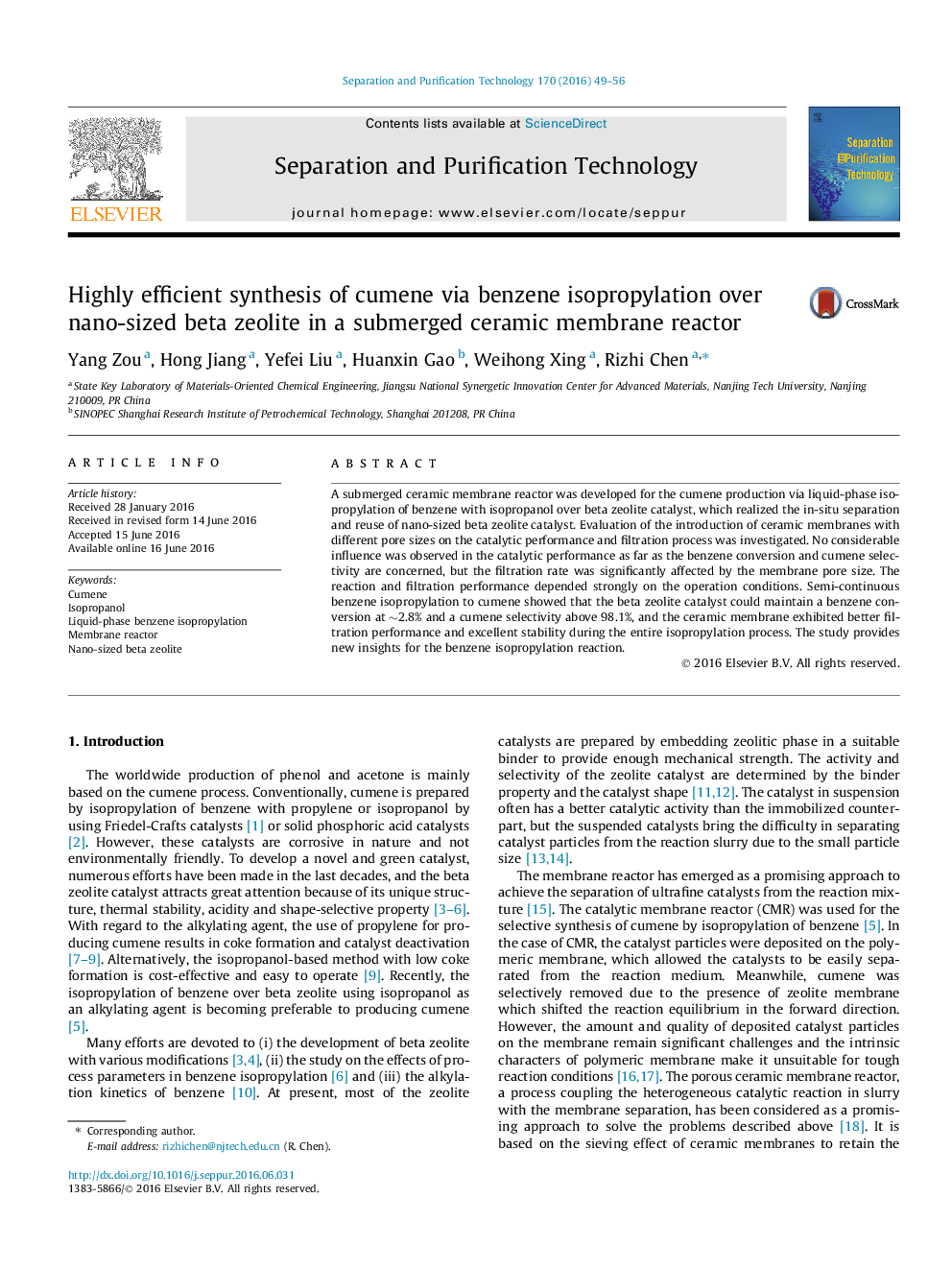| Article ID | Journal | Published Year | Pages | File Type |
|---|---|---|---|---|
| 639803 | Separation and Purification Technology | 2016 | 8 Pages |
Abstract
A submerged ceramic membrane reactor was developed for the cumene production via liquid-phase isopropylation of benzene with isopropanol over beta zeolite catalyst, which realized the in-situ separation and reuse of nano-sized beta zeolite catalyst. Evaluation of the introduction of ceramic membranes with different pore sizes on the catalytic performance and filtration process was investigated. No considerable influence was observed in the catalytic performance as far as the benzene conversion and cumene selectivity are concerned, but the filtration rate was significantly affected by the membrane pore size. The reaction and filtration performance depended strongly on the operation conditions. Semi-continuous benzene isopropylation to cumene showed that the beta zeolite catalyst could maintain a benzene conversion at â¼2.8% and a cumene selectivity above 98.1%, and the ceramic membrane exhibited better filtration performance and excellent stability during the entire isopropylation process. The study provides new insights for the benzene isopropylation reaction.
Keywords
Related Topics
Physical Sciences and Engineering
Chemical Engineering
Filtration and Separation
Authors
Yang Zou, Hong Jiang, Yefei Liu, Huanxin Gao, Weihong Xing, Rizhi Chen,
